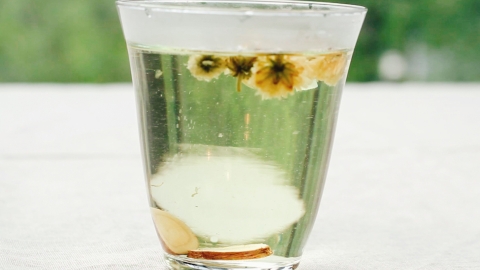Can licorice be steeped in water and consumed for a long time?
Generally speaking, licorice is not recommended for long-term consumption as a herbal tea. The detailed explanation is as follows:

Licorice is a commonly used traditional Chinese herb known for its effects of strengthening the spleen and replenishing vital energy, clearing heat and detoxifying, relieving phlegm and cough, alleviating spasms and pain, and harmonizing other medicinal ingredients. Drinking licorice tea in moderation may help relieve symptoms such as spleen and stomach weakness, fatigue, palpitations, shortness of breath, and excessive coughing with phlegm. However, long-term consumption of licorice tea may lead to various health risks.
The components of licorice need to be absorbed and digested by the spleen and stomach. Long-term consumption can increase the burden on these organs, potentially causing damage and resulting in discomforts such as abdominal distension, loss of appetite, and nausea. Licorice contains glycyrrhizin and other components that have hormone-like effects. Prolonged consumption may lead to water and sodium retention in the body, causing symptoms such as limb swelling and elevated blood pressure. This is especially dangerous for individuals with chronic conditions such as hypertension, heart disease, or kidney disease.
Before consuming licorice, individuals should consult a doctor or pharmacist to determine whether their constitution and health condition are suitable for drinking licorice tea. Particular caution should be exercised by those with chronic diseases. If any adverse symptoms such as nausea, vomiting, diarrhea, edema, or elevated blood pressure occur during consumption, usage should be stopped immediately and medical attention sought promptly.






